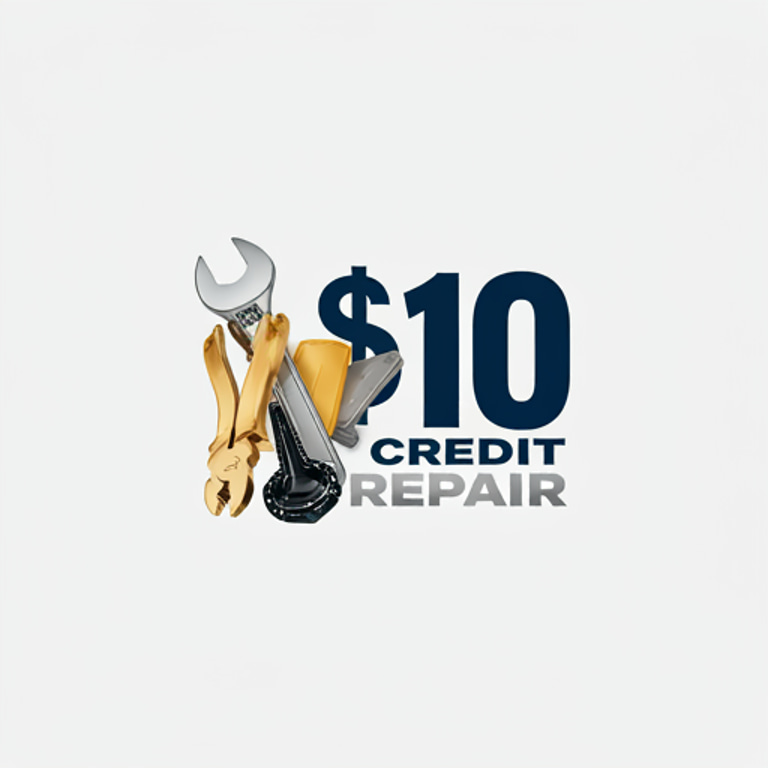This is Peak Season for Home Buyers
Homebuyers Credit Repair
UNDERSTANDING CREDIT SCORECREDIT REPAIRSUBPRIME LENDERHOME MORTGAGEHOME BUYING


June marks the heart of homebuying season, when competition heats up and securing the best deals becomes even more critical. But before you dive into open houses and bidding wars, there's a crucial step many overlook: getting your credit in top shape. This guide will walk you through popular loan options, highlight the importance of pre-approval, and explain how Ten Dollar Credit Repair can help you navigate this competitive market.
Why Credit Matters Most Now
During peak season, lenders are inundated with applications. Those with strong credit stand out, securing the most favorable terms. Poor credit, on the other hand, can lead to:
Denied Applications: In a competitive market, lenders are less likely to take risks on borrowers with lower scores.
Higher Interest Rates: Even if approved, you'll face steeper interest rates, significantly increasing your long-term costs.
Limited Options: You might be restricted to specific loan types or lenders willing to work with higher-risk borrowers, often with less favorable terms.
Understanding Your Home Loan Options
Here's an overview of common loan types. Note that requirements can vary by lender:
FHA Loans:
What they are: Insured by the Federal Housing Administration, FHA loans are designed to help borrowers with lower credit scores and smaller down payments.
Credit Requirements: Generally, a minimum credit score of 580 is required for a 3.5% down payment. Some lenders may accept scores as low as 500 with a 10% down payment.
Down Payment: As mentioned, 3.5% for scores 580+, 10% for scores 500-579.
Loan Limits: FHA loan limits vary by county. You can find them on the FHA website.
Terms: Typically 15 or 30 years.
Qualifications: Stable income, verifiable employment, and a reasonable debt-to-income ratio (DTI).
Documents Typically Needed:
Pay stubs for the last 2-3 months
W-2s for the last 2 years
Bank statements for the last 2-3 months
Tax returns for the last 2 years (if self-employed)
Proof of other income (if applicable)
Identification documents
VA Loans:
What they are: Available to veterans, active-duty military, and eligible surviving spouses, VA loans are guaranteed by the Department of Veterans Affairs.
Credit Requirements: While the VA doesn't set a minimum credit score, most lenders prefer a score of 620 or higher.
Down Payment: VA loans often don't require a down payment.
Loan Limits: VA loan limits generally conform to conforming loan limits set by the Federal Housing Finance Agency (FHFA). These limits vary by county.
Terms: Typically 15 or 30 years.
Qualifications: Certificate of Eligibility (COE) from the VA, stable income, and a reasonable DTI.
Documents Typically Needed:
Certificate of Eligibility (COE)
Pay stubs for the last 2-3 months
W-2s for the last 2 years
Bank statements for the last 2-3 months
Tax returns for the last 2 years (if self-employed)
DD-214 (for veterans)
USDA Loans:
What they are: Offered by the U.S. Department of Agriculture, USDA loans are available to borrowers in eligible rural and suburban areas.
Credit Requirements: Most lenders prefer a credit score of 640 or higher.
Down Payment: USDA loans often don't require a down payment.
Loan Limits: USDA loan limits vary by area.
Terms: Typically 30 years.
Qualifications: Income limits, property eligibility (rural area), and stable income.
Documents Typically Needed:
Pay stubs for the last 2-3 months
W-2s for the last 2 years
Bank statements for the last 2-3 months
Tax returns for the last 2 years (if self-employed)
Conventional Loans:
What they are: Not insured or guaranteed by the government.
Credit Requirements: Generally, a credit score of 620 or higher is required, but many lenders prefer 680-740.
Down Payment: Can range from 3% to 20% or more, depending on the lender and your credit profile.
Loan Limits: Conforming loan limits are set by the FHFA and vary by county. Non-conforming (jumbo) loans are available for higher-priced properties.
Terms: Typically 10, 15, 20, or 30 years.
Qualifications: Strong credit history, stable income, low DTI, and sufficient assets.
Documents Typically Needed:
Pay stubs for the last 2-3 months
W-2s for the last 2 years
Bank statements for the last 2-3 months
Tax returns for the last 2 years (if self-employed)
Asset statements (e.g., brokerage accounts)
Pre-Approval vs. Pre-Qualification: A Critical Distinction
Pre-Qualification: An estimate of how much you might be able to borrow. It's based on information you provide and is less rigorous.
Pre-Approval: A commitment from a lender to lend you a specific amount, subject to certain conditions (like the property appraising). It involves a thorough review of your finances, including your credit report.
Getting Pre-Approved is Essential:
Shows sellers you're a serious buyer.
Gives you a clear budget.
Speeds up the closing process.
How Ten Dollar Credit Repair Can Help You Secure the Best Rate
Improving your credit before you apply is crucial. Even a small improvement can save you thousands. Ten Dollar Credit Repair provides the tools to:
Understand Your Credit Report: Identify any negative items or inaccuracies.
Dispute Errors: Learn how to effectively challenge and remove them.
Improve Your Credit Score: Implement proven strategies to boost your score.
Build a Strong Financial Profile: Develop positive credit habits.
Don't Wait Until It's Too Late!
With home buying season is fast approaching, start working on your credit now. Ten Dollar Credit Repair empowers you to enter the home buying process with confidence and secure the best possible terms.
We recommend you know what your FICO score is before you start! We recommend MyScoreIQ: Click the link to find out what your TRUE FICO Score is: https://www.myscoreiq.com/get-fico-max.aspx?offercode=43214048
